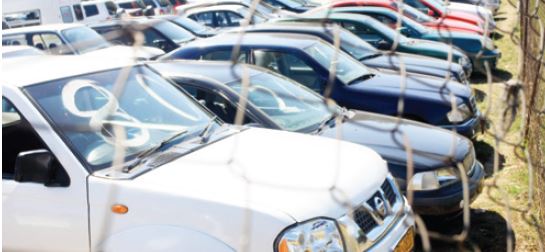
The influx of second-hand vehicles into the country has suffocated local assemblers and dealers of new vehicles are struggling to cope in the absence of cheap financing from banks.
BY TATIRA ZWINOIRA The popularity of pre-owned cars has grown so much that sellers in Japan, Be Forward and SBT, have set up local offices to satisfy the growing demand.
Latest statistics show that pre-owned car imports total over 60 000 in the period 2009 up to June this year.
Quest Motor Corporation said last week the influx of second-hand vehicles was taking a knock on its business.

“On a single shift, we can produce 35 vehicles a day, at capacity that would be three shifts per day, so 105 vehicles per day. Meaning we could do 2 000 cars per month at full capacity,” sales and marketing director Niroshia Abdulla said.
She said government needed to imitate the South African system which banned the importation of second-hand vehicles.
“If you look at South Africa, the government foresaw the potential influx of vehicles and quickly moved to put legislation to control the cheap cars from entering the market. Though cheaper in terms of quality of the vehicle as compared to locally assembled products, motorists end up spending more,” she said.
- Chamisa under fire over US$120K donation
- Mavhunga puts DeMbare into Chibuku quarterfinals
- Pension funds bet on Cabora Bassa oilfields
- Councils defy govt fire tender directive
Keep Reading
“These second-hand vehicles that are coming in have been discarded for being too old or not suitable for the roads in the countries they originate from. So these vehicles end up being more expensive for local motorists in the long run.”
Motor Industry Association of Zimbabwe (MIAZ) executive director Sarudzai Masoka said the reason why motorists opted for second-hand vehicles was affordability.
“This is purely an issue of affordability. In any country experiencing economic decline, the gap between the wealthy and the poor will tend to widen. There is always a large negative reaction to the high price of a new car. For the man in the street, the desire is to own their own ‘wheels’, no matter where they come from, but at affordable prices,” Matsoka said.
Treasury has been putting restrictions on the importation of cars through increasing tax.
Surtax on second-hand passenger vehicles has now been increased to 35% from 25% beginning this month in an effort to encourage people to buy cars locally.
Statistics from the Zimbabwe Revenue Authority show that 13 904 vehicles have passed through Beitbridge border post since the beginning of the year.
Abdulla said Quest did not want to gain monopoly to supply vehicles, “but more needs to be done to encourage local spending on vehicles”.
“If we can encourage local spending on vehicles, it can lead to job creation. Most people think you cannot get good quality parts in the country but the truth is that some of them you can [find] and this can lead to job creation,” she said.
Standardbusiness was told last week that Be Forward and SBT have set up local offices to help would-be buyers to check the condition of the vehicles, something unavailable online.
Clients who use Be Forward services are charged for freight, value of the car and insurance, with duty of the vehicle being almost double the price at the border with a rebate.
When choosing where to collect the vehicles from, a Be Forward sales representative said trends showed that most motorists opted to have the car shipped to the Dar Es Salaam port as there were no clearance charges, thus making it cheaper.
Upon bringing the vehicle to the Beitbridge border post, however, duty sees motorists paying nearly double the price of purchase of the vehicle.
This year, the impact of second-hand vehicles has seen the retail motor industry taking a beating to 2 212 down from 2 500 from January to July over the same period in 2014.
At the country’s vehicle sales peak, 25 000 new vehicles were sold annually. Statistics from MIAZ showed that between 2010 and 2011, the total new vehicles market grew by over 88%.
The impact of these second-hand vehicles has seen big brands traditionally used to targeting high income earners releasing new vehicles targeted at lower income earners to compete with second-hand vehicles.
Such brands include the release of the Datsun Go from Nissan and the Picanto from KIA as the car industry becomes more and more depressed.
Duty has also proven an issue for these established brands. CFAO Motors Zimbabwe group marketing manager Lindsay Ehrich said whenever duty was increased, it had a negative impact on all brands. CFAO are licensed dealers of Hyundai and Volkswagen vehicles.
“It can sometimes even affect a product to the point of pricing it completely out of the market. Buyers will opt to purchase that product outside of the country and import independently, which therefore takes business away from various brands,” Ehrich said.
However, Nissan Clover Leaf Motors managing director Stanford Sibanda said imports were not causing problems for newer vehicles as they were targeted at lower income earners. He said financing from banks was scarce, making it hard for motorists to purchase newer vehicles.
“Financing is a problem as banks are charging interest rates of 18% to 20%. Organisations purchasing vehicles on behalf of their employees shy away from financing and opt for cash. In the motor industry, about 10% buy vehicles using finance while the other 90% use cash,” Sibanda said.











